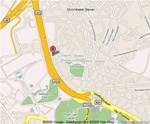A: Goodmorning Mr. B, this is X from publisher Y. We publish Z, a European bi-monthly business magazine that is distributed to over 12.000 high-level European decision makers. For our next issue of Z we would like to set up an interview with you.
B: Okay, and what would be the topic?
A: Basically one of our editors will visit you to talk about your company history, developments, marketing strategies, your products and services, your market differentiators, what makes your company unique and your future plans. During the interview you can also highlight other aspects that are of interest to your company. The interview is absolutely free of charge and you will be able to review and change the text as you wish.
Does this sound too good to be true? Guess what: it is! An interview is never free. Firstly you have to invest time in preparation and in the actual interview itself. If you work with a PR agency, obviously you will need to pay your agency as well if you want them to support you. A good agency will provide you background information on the publication, its target group, and they will help you to define a good message for that target group. This is the normal stuff so far.
But what's worrying to the specific example above, is that they promise a free interview but will not publish the story without any pictures or photos. Here comes the catch: the specific magazine that I mean (but will not mention, you will recognize them when thet contact you ;-)), charges a flat 9,95 EURO per milimeter height and breadth of any pictures. So if you have 3 pictures of around 12 cm height and 8 cm breadth you will easily need to pay around 6.000 EURO!! Most people don't realise this from the beginning, so once the invoice comes in, they have already spent a lot of time in the interview and usually pay.
Although quite unusual, this is not even my main argument for not going into these kind of requests. Most importantly, the target group of these kind of magazines is very blurry and unclear. Just because basically anyone can buy their space, the magazine becomes a collection of company profiles with all kinds of companies, from IT to industrial and construction to medical and so on. Which makes you wonder who really reads it. The latest issue of the magazine that I received yesterday includes 28 of these interviews, so you can make your own calculation of their revenues ;-) Times 6 on a yearly basis.
What's really behind their success is people's basic feeling of being honoured and flattered when someone asks them to have an interview. This purely emotional reaction puts all rational to the background and people often totally forget about their PR and marketing strategies.
Throughout my career I have never worked with a journalist that demands to be paid for an interview or any photos that are published along with it. Surely I have worked on paid advertisements and advertorials for my clients, but this is a clear process from the start. And yes: our clients sometime pay journalists for travel expenses and accomodation when they are invited to a location outside of their own country. But this is just an enabler for editorial staff that have tight budgets for this. A couple of years when I travelled with a Dutch television crew to the US for an interview with the CEO of one of my clients, the tv crew actually insisted on paying their own expenses.
So what is the right strategy to make sure you are investing your valuable time and resources in the right kind of media?
1. When approached, please make sure to get detailed information about target audience, circulation and distribution model. If possible, ask for a copy of the magazine to review. Your PR agency can help here!
2. Match the publications target audience to your own target audience and assess if there is a match or overlap.
3. If the target audience is relevant for your, then start to define your objectives. What would you like readers to know, feel or do?
4. Create a storyline together with your PR department of PR agency. Position yourself as if you were an outsider. Is your company history and strategy compelling enough for readers to reach the objectives that you defined? Or do you want to create a feeling of recognition, showing that you understand the issues of readers?
Obviously, your storyline may be different than the story the journalist wants to cover. Your PR agency should be able to find out where the overlaps are, and how both parties can benefit from a good story.
Richard
4.10.07
Interview requests: don't just be flattered but remember your business
Subscribe to:
Post Comments (Atom)

No comments:
Post a Comment